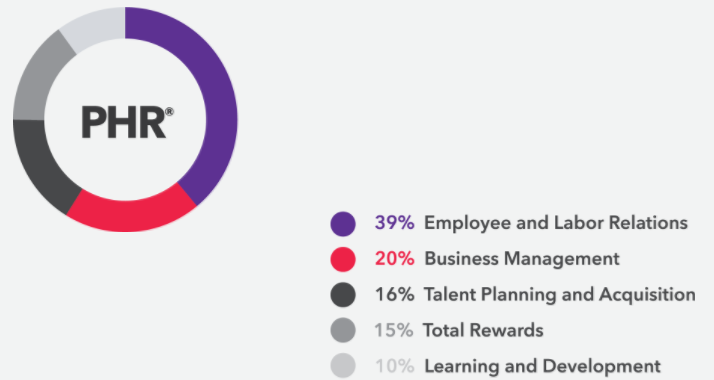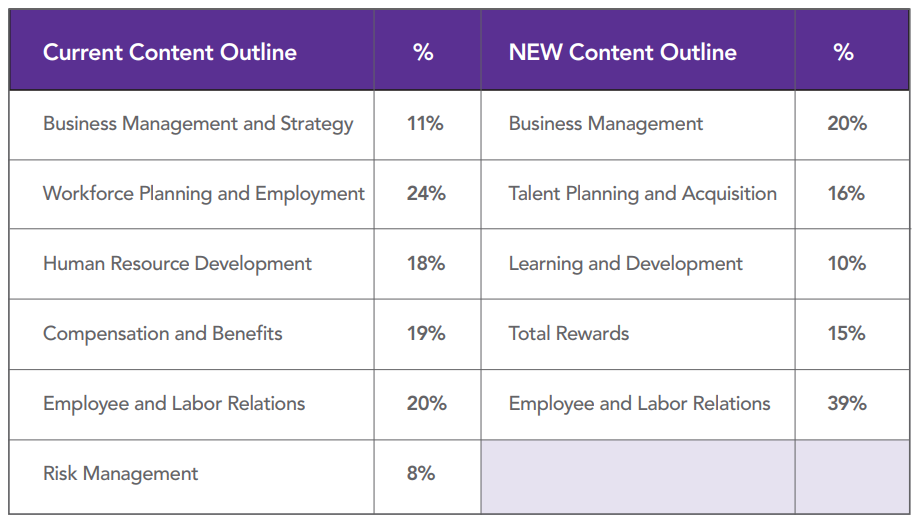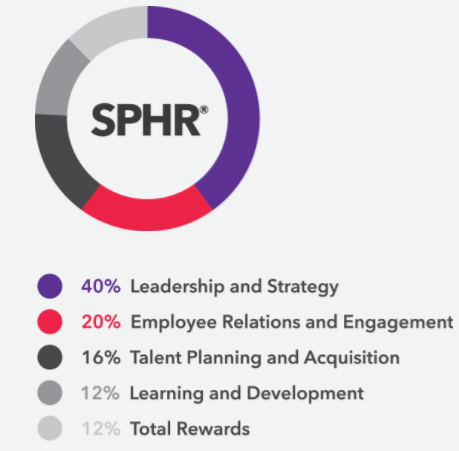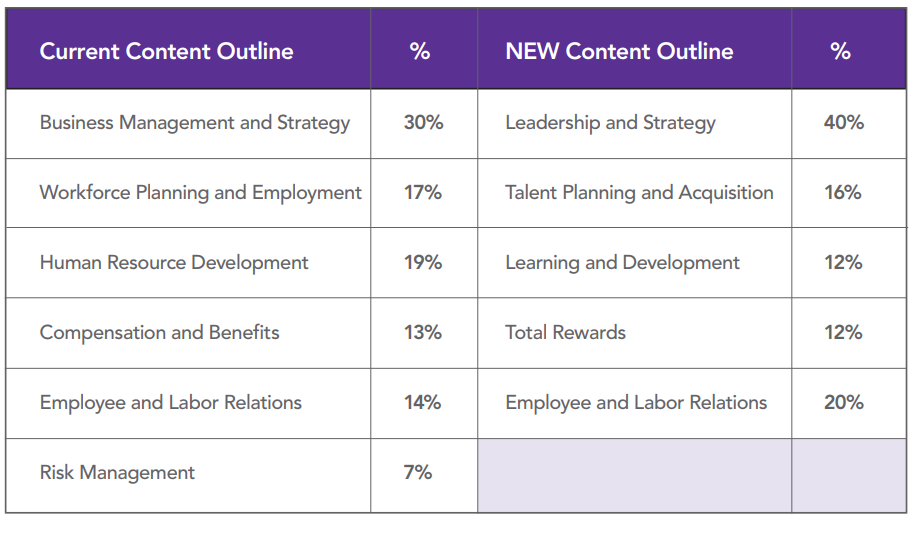
Thank-you to all of our regular readers of the blog!
If we can assist you in any way please do not hesitate to get in touch at http://www.psychpress.com.au, or contact us at info@psychpress.com.au
Wednesday, 30 May 2018
Guest Article: Failure Is Not A Competency by Jay Kuhns, SPHR
I get the whole "learn from your mistakes" angle...but, really...relishing in one's failures?
Lower the Bar
I'll be honest here. I don't want to fail. In fact, I get upset with myself when I stumble, let alone fail. I'm sure you do too.
Maybe, we have embraced failure as way to limit expectations of ourselves and our colleagues?
Maybe we have socialized failure so heavily, it is now more important to "own it" when we fail vs. being held accountable?
Maybe we need to stop making excuses about weakness, incompetence, and yes, failure?
How does that sound?
Harsh or Honest?
If you've written off today's post as a rant, think again.
How is failure treated in your organization? Do those leaders who struggle continue to stay in their roles, all while your senior leadership team preaches accountability and upholding corporate values?
You can't have it both ways.
Maybe what's happened to the corporate world is that we're all so fearful of employment litigation, that we've made it okay to hide behind excuses to be weak and indecisive? We see it a lot...so...it must be true.
Right?
How About You
How are you addressing failure and driving accountability into your organization? Is it working? What has made your approach successful?
I'd love to hear from you.
No Excuses.
pic
Article source:Jay Kuhns, SPHR - Failure Is Not A Competency»
Check out more of Jay Kuhns' work at No Excuses HR
Guest Article: Stop! Do You Really Need Another Employee Survey? by Ben
At a recent event I had the chance to speak with several HR leaders about their challenges, issues, and problems. Inevitably when I would ask them how they planned to follow up or dig into the issues, they mentioned the same thing: an employee survey.
 But is that the right avenue for gathering information? Are there times when surveys might not be the best way to gather intelligence on what’s happening in the business?
But is that the right avenue for gathering information? Are there times when surveys might not be the best way to gather intelligence on what’s happening in the business?
Limitations of Surveys and Survey Alternatives
When you’re gathering data from people, surveys are one of the most cost-effective methods for getting a lot of responses from a lot of people in a relatively short time. But there are a couple of issues with surveys. The first is response bias. This concept simply means people respond differently to questions than they might otherwise. Answers may be skewed purposefully to make the responder feel better. Alternatively, responses may be skewed if the person perceives the question differently than another individual. For example, how would you respond to this question?
On a scale from one to five, how happy are you at work?
Now some of us might be naturally happier, more optimistic people, and we’re going to mark something in the three to give range regardless. Alternatively, some of us are more negative or pessimistic, so it would take some minor miracle to get that number into the four or five point range. Is that a bad thing? Does it mean we’ve failed? Not necessarily, but it is one of the limitations of surveys we need to be aware of.
One of the topics I discuss in the HR certification prep materials around data gathering is alternative collection methods. Have you considered other ways to get data beyond a survey? For example, maybe you can use a survey for a quick pulse and then do a deep dive with a small handful of cross-functional focus groups? Alternatively, if you need deeper insights into a particular concept, then you must use something beyond a survey, from focus groups to targeted interviews, to help you understand the problem and potential solutions.
It’s important to remember when surveys might be the best option and when they are not.
Structuring Questions
Another common challenge with employee surveys? Structuring questions. As a researcher I structure questions for a living, so I’m fairly comfortable with designing surveys and using the data on the back end, but less experienced individuals will make some common mistakes, such as:
- Asking too many questions. This leads to survey fatigue where people skip to the end with incorrect or blank answers or just drop out of the survey altogether. If it takes more than five minutes to answer your survey, you need to make it very clear about why someone is investing their time heavily in this process–don’t expect them to see and understand the value inherently!
- Asking questions that you don’t plan to use. Every question needs to have a purpose or plan for how you expect to use the resulting data. If you don’t know how you’ll use it, then leave it out. People remember the questions they answered and if you are not using the information they offered up then they will be less likely to respond to your queries next time!
- Asking questions across too many areas but not really getting enough insight into any one section. If you want to analyze your benefits, ask some benefits questions. If you want to understand engagement and satisfaction, ask those types of questions. But don’t try to ask about benefits, engagement, perks, and other types of suggestions within the context of a single survey. It’s better to break them apart and space them out.
I am such a stickler for this, but you have to structure your questions to get actionable data. You might get a sense of engagement levels from your employees, but do you have an idea of how you can actually resolve the issue based on what you’re seeing?
Critical Point: Following Up on Employee Surveys
Most importantly, how do you follow up? One of the issues I often hear from HR leaders is “we don’t ask questions with surveys because we know what we’ll hear.” False. You think you know what you’ll hear. Or you are afraid you can’t solve the problem they bring up, so you avoid asking the question. The issue with that is your people STILL HAVE THE PROBLEM. It’s like having an alarm going off in your ear every day that is driving you crazy but others seem not to hear.
That’s a reality for your employees when you don’t acknowledge the issues they face, and sooner or later they will leave and find an employer that does care. If you want to take it a step further, your BEST employees will be the first to leave because they have the easiest time of finding a new job elsewhere. And acknowledging employee issues doesn’t mean you solve them. Sometimes just agreeing that they exist is enough to take the edge off.
Bottom line: don’t ask if you don’t plan to follow up. Acknowledgment is free, and action isn’t always required.
What are your issues with survey design and how do you use the information you collect to make better decisions?
Article source:Ben - Stop! Do You Really Need Another Employee Survey?»
Check out more of Ben Uebanks' work at Upstart HR
Tuesday, 22 May 2018
Guest Article: #MeToo Is About Everyone by Jay Kuhns, SPHR
It's embarrassing that in a country with as much potential as the United States, it's taken this long for these voices to be heard. It's also embarrassing that men continue to behave this way.
When we consider the racial and religious divide that has been reignited and supported over the last two years, it's a miracle that anyone dares speak out.
What Is Happening?
Has something fundamentally changed? Have centuries of abuse, harassment and a male dominated society finally started to crumble? Has the pendulum swung so far and so fast that no one is entirely sure what the 'new normal' looks like?
I don't have the answer.
But I do know one thing...
WHAT?!
Where are the powerful male voices supporting #MeToo?
 Many companies espouse "equality" and "value their employees" but I see precious little in writing, and even less 'action' from their leaders, taking a stand.
Many companies espouse "equality" and "value their employees" but I see precious little in writing, and even less 'action' from their leaders, taking a stand.We are going to listen to each other.
We are going to be role models for our children, our employees, and our leaders.
I'd love to hear from you.
Article source:Jay Kuhns, SPHR - #MeToo Is About Everyone»
Check out more of Jay Kuhns' work at No Excuses HR
Monday, 21 May 2018
Guest Article: Did Google Fake its AI Demo? A Lesson for Employer Communications by Ben
If you’re a nerd or just a casual technology news consumer, you might have heard about the recent live Google Duplex demo with the company’s CEO. In essence, the technology will assist you with those mundane or annoying times when you need to schedule an appointment. Simply tell your device to schedule an appointment for you and it will take care of the whole thing, phone call, scheduling, and all.
Sounds amazing, right? But following the demo, journalists began asking questions of Google. Here’s an article that tipped me off to the issue:
The demo was indeed impressive… But is it possible that the promise of Google’s advanced artificial-intelligence tech is too good to be true? As Axios noted Thursday morning, there was something a little off in the conversations the A.I. had on the phone with businesses, suggesting that perhaps Google had faked, or at least edited, its demo.
Unlike a typical business (Axios called more than two dozen hair salons and restaurants), the employees who answered the phone in Google’s demos don’t identify the name of the business, or themselves. Nor is there any ambient noise in Google’s recordings, as one would expect in a hair salon or a restaurant. At no point in Google’s conversations with the businesses did the employees who answered the phone ask for the phone number or other contact information from the A.I.
Further, California is a two-party consent state, meaning that both parties need to consent in order for a phone conversation to be legally recorded. Did Google seek the permission of these businesses before calling them for the purposes of the demo? Was it staged in the simulated manner of reality TV? (Source: Vanity Fair)
Lessons for the Workplace
 Let’s set aside the debate for now about whether they did or didn’t fake it and instead look at how Google has responded to the questions/criticism. The real issue is that Google has been unresponsive to numerous requests from various sources trying to find answers to these questions. Back to Vanity Fair:
Let’s set aside the debate for now about whether they did or didn’t fake it and instead look at how Google has responded to the questions/criticism. The real issue is that Google has been unresponsive to numerous requests from various sources trying to find answers to these questions. Back to Vanity Fair:
Google isn’t saying. When Axios reached out for comment to verify that the businesses existed, and that the calls weren’t set up in advance, a spokesperson declined to provide names of the establishments; when Axios asked if the calls were edited (even just to cut out the name of the business, to avoid unwanted attention), Google also declined to comment. The company did not immediately respond to a series of questions from the Hive.
The lesson for the rest of us? In the absence of communication, people will believe anything even remotely plausible. In fact, they’ll sometimes believe things that they would otherwise consider totally crazy. It all depends on the volume and variety of information they receive from their leaders. Here are two quick examples:
- In my piece on why Uber drivers were cheating their scheduling and payment algorithms, I explained some of the ways those individuals fought back against the firm’s rigid policies. The workers didn’t like having a faceless algorithm managing and tracking their every move without a way to have a two-way conversation. I actually write about this concept in the AI for HR book because it’s a cautionary tale for employers not to go too far with algorithms.
- I wrote a paper recently on compensation transparency and how employers can adopt a more transparent approach (with some practical advice). At the end of the day, workers that feel like their employer isn’t sharing information with them will assume that their peers earn more or that they are getting an unfair deal. By being more transparent about compensation strategy and processes employers can have a more productive dialogue with workers on pay.
What takeaways did you get from today’s discussion (other than the fact that you’re pumped about Google Duplex scheduling your next hair appointment)?
Article source:Ben - Did Google Fake its AI Demo? A Lesson for Employer Communications»
Check out more of Ben Uebanks' work at Upstart HR
Thursday, 17 May 2018
Guest Article: Does Your HR Career Leave an Impact? [Podcast] by Ben
If you know anyone who is considering an HR career transition or has recently moved to a new HR or recruiting role, this is the episode for them!
In my 10+ years in the workplace, I still screw things up. Do you? It’s usually driven by urgency rather than slowing down to take a strategic look at how to make a decision. While I will say I haven’t really made career choice mistakes that way, I could have probably done some of the transitions better. More planning, more prep, better alignment with supervisor expectations, etc.
In today’s episode of We’re Only Human I chat with Renee Robson, an HR leader currently based in Australia. We talk about what it takes to measure your success as an HR leader, how to create an environment where you can succeed, the best things about working in HR, and more. It’s a really fun discussion and you can hear the passion in Renee’s voice as we cover all these points!
The thing I think of when this topic of impact arises? Legacy. What’s your legacy? When you leave, how will people refer to you? What will they say about your work and your impact?
And while you won’t hear it in the recording, Renee gets the award for longest “chit chat” before and after a recording. I think we talked for over an hour total OUTSIDE the conversation you’re about to hear. :-) Also, if you enjoy this episode you will probably like “How to Be a Chief Trouble Maker in HR” as well where I talk with Jill Kopanis about breaking out of the stereotypical HR mold.
Show Notes
Episode link: https://beneubanks.podbean.com/e/33-how-to-measure-your-success-in-an-hr-career/
How do you measure success as an HR leader? Is it in the company’s retention and hiring rates, or is it something more personal? Maybe you think about how you’ve helped others succeed in spite of challenges.
 Today’s discussion explores how to measure your success, how to make a career transition successfully, and more. Speaking with Renee Robson, Performance and Capability Manager for Widex Australia, Ben digs into what it takes to stratgically run your HR career and take it to new heights. For example, how do you personally lay a foundation of success before and after you take on a new job?
Today’s discussion explores how to measure your success, how to make a career transition successfully, and more. Speaking with Renee Robson, Performance and Capability Manager for Widex Australia, Ben digs into what it takes to stratgically run your HR career and take it to new heights. For example, how do you personally lay a foundation of success before and after you take on a new job?
Renee’s insights include a variety of information, from the best things about working in HR to the best way to measure your success in an HR role. She even offers a way to build out a 30, 60, or 90 day plan when taking on a new role or project to ensure sustained success.
Connect with Renee:
https://twitter.com/reneeroberz
https://www.linkedin.com/in/reneerobson/
See other episodes and information about We’re Only Human: http://lhra.io/podcast
Article source:Ben - Does Your HR Career Leave an Impact? [Podcast]»
Check out more of Ben Uebanks' work at Upstart HR
Tuesday, 15 May 2018
Guest Article: Standing In the Middle of a Time of Worry by Jay Kuhns, SPHR
The weight of...everything.
So much to accomplish.
So many projects.
So many needs for the right talent doing the right things at the right time.
...and so much extra anxiety because we're always in CYA mode.
Friends, this is simply exhausting.
A New Way
I think a lot about pressure. The pressure that executive leadership brings. The pressure to deliver results for the companies that hire us. The pressure to grow my company. Oh, and also to stay on top of every facet of my personal life as well.
No big deal, right?
If we're constantly thinking about being the best we can be, and trying to follow the arcane school of thought that we should just "pull ourselves up by our bootstraps and handle everything alone" we're way off-base.
Life is not an individual journey.
So, what options do we have?
Finding Center
For me, it's been a long process. Finding my way back to a set of values and beliefs that provides a completely new sense of who am I, the power I have to make a difference, and the support that is all around me has been nothing short of profound.
It's been a return to my core values, if you will. A renewed sense of something larger than me, all around me, that fills me with peace and strength...confidence and optimism.
When you find that "center" in your life, it means that you...
- trust it
- value it
- believe in it
- have faith in it
...and thrive.
How About You
Have you lost your "center?" It's easy to do. With our frenetic pace, it's no wonder we lose sight of it from time to time. Perhaps today is good day to pause, reflect, and reconnect with what is most important?
I'd love to hear from you.
No Excuses.
pic
Article source:Jay Kuhns, SPHR - Standing In the Middle of a Time of Worry»
Check out more of Jay Kuhns' work at No Excuses HR
Thursday, 10 May 2018
Guest Article: Culture of Weakness by Jay Kuhns, SPHR
I See You
I looked at them through two lenses.
The first was as an admirer...they had years of success under their belt, and wisdom and insight to share with me. I was a sponge, and wanted to learn as much as I possibly could.
The second however, was not so kind. I often considered them out of touch with contemporary strategies, unable to keep up with the rapid pace of change, and their incredibly frustrating risk-averse approach to just about everything.
Has Anything Changed?
Tough question to answer, right? There are still amazing leaders out there who continue to push themselves, and their organizations forward.
This is often done at significant risk to the bold leader!
There is also a seemingly endless supply of leaders who just aren't courageous enough to take a stand. Why is that still so prevalent?
I was listening to Laurie Ruettimann's new podcast Let's Fix Work where she interviewed Jason Lauritsen about his views on the workplace...
Preach, brother!

The challenge then, is for us to not be viewed as weak and ineffective, focused only on protecting our status as executives.
But rather, to be high impact leaders who connect with the entire team in meaningful ways, and have the courage to take risks, make bold decisions, and inspire those around us to stay with the organization and help it flourish.
How About You
What is the leadership culture in your organization? How are you reinforcing, or hopefully, disrupting that culture? What will it take for you to move one step forward towards a new reality?
I'd love to hear from you.
No Excuses.
pic
Article source:Jay Kuhns, SPHR - Culture of Weakness»
Check out more of Jay Kuhns' work at No Excuses HR
Monday, 7 May 2018
Guest Article: 2018 HRCI Certification Changes: What You Need to Know by Ben
If you haven’t heard, HRCI recently came out with some major changes to their learning content structure–the biggest I’ve seen in the last ten years. Below I outline what you need to know, how to prepare, and a major announcement from me about what we’re doing to help you prepare.
Before I jump into the changes, one of the most common questions I’m getting is whether our certification materials help with this NEW exam. I cover this more deeply below, but my most common answer is this: there aren’t fundamentally different ways to practice good HR. There’s pretty much one way. And changing exam weightings, names, or even throwing in a competing certification (SHRM) doesn’t change that, despite the fact that each certifying body tries to make themselves sound unique and different. Our courses and training materials are designed to help HR professionals get their arms around the needs of the business and how HR can align with them, whether in recruiting, learning, performance, or something else.
That said, we ARE making changes to what we offer, and again, I cover that in more detail at the end of this post.
HRCI Changes: The Big Picture
Since SHRM’s certification came out a few years ago, HRCI has been looking for a way to differentiate itself in the market. This change is one of those ways it hopes to modernize the exam content and be more competitive. On August 1st, 2018, the new body of knowledge will go into effect. Until that time, you can continue to test using the current body of knowledge and any of the HR certification courses we offer here
[Curious about certification? See: How much can I earn with an HR certification?]
PHR Changes

Instead of six sections, the 2018 PHR Exam Content Outline will have five sections with new section names and weightings. The new PHR emphasizes the HR professional’s role in business management, and employee and labor relations. Risk management remains important even though the responsibilities will now fall under the employee and labor relations heading. The changes reflect current HR practices and terminology.
Previously the exam focused on six different areas, and now it shifts down to five. In addition to modernizing some of the titles of the sections (for instance, human resources development always has been about learning and development, but now the title actually says that) the weight of each section has shifted around as well. Here’s the difference:

August 2018 PHR Content Outline Changes
SPHR Changes

Instead of six sections, the 2018 SPHR Exam Content Outline will have five sections with new section names and weightings. The new SPHR emphasizes the senior HR professional’s role in leadership and strategy, as well as employee relations and engagement. Risk management remains important and is found under the employee relations and engagement section. This section also includes employee performance, labor strategies, and diversity and inclusion.
What surprises me most about this transition is that the SPHR seems to be an executive-focused certification more than before. Reducing nearly every category and heavily weighting the content towards leadership and strategy (it got a 30% bump relative to its previous weighting) means this is by far the biggest chunk of exam content. Here’s the chart outlining the differences in the content:

August 2018 SPHR Content Outline Changes
If you’re planning on taking the exams in the coming year, make sure you keep in mind that anything through the end of July 2018 is using the old exam topics and layout, and anything starting in August will use the new exam topics and content.
Big announcement!
Between now and August I’ll be completely overhauling the HR certification materials offered through upstartHR. In the last 10 years of helping people with their exams I’ve learned some great lessons on what works (and what doesn’t). I’ve built courses to be very flexible, but tools today are available that can make the entire process even more user friendly.
With the need to change the course content to account for these changes from HRCI, this is an opportunity to dramatically revamp the overall slate of offerings, from the courses to the audio content, to really reflect the needs of today’s HR leaders. And for those of you considering a SHRM certification, don’t feel left out! Lots of students have used the materials to prepare for the SHRM exams because they are situational/practical, not just a bunch of theory like you get with most textbooks (that’s the number one reason people fail the exams, if you didn’t know). The new version will have some SHRM-specific aspects to align with those competencies highlighted by the SHRM certifications.
Anyone that has previously purchased materials will have an opportunity to upgrade to the new content if needed at minimal cost. However, the cost of all courses will increase when we migrate to the new delivery platform due to the cost of creating and maintaining the course content over time. I’ll keep everyone posted in advance of the transition. If you have questions, as always, feel free to reach out to me at ben@upstarthr.com
What are your thoughts on these changes? Do they accurately reflect the realities of HR today?
Article source:Ben - 2018 HRCI Certification Changes: What You Need to Know»
Check out more of Ben Uebanks' work at Upstart HR
Wednesday, 2 May 2018
Guest Article: Ruthlessly Eliminate Hurry by Jay Kuhns, SPHR
My pace...the hectic, busy, sometimes chaotic whirlwind of life can be a bit much at times. Easy to complain about, right? And also, easy to be thankful for in a world with so much pressure.
Something More
Amidst the noise, deadlines, expectations and overloaded calendars is something else waiting for us. However, we often don't notice this opportunity because we're always "in a hurry."
When we find ourselves asking if all of this craziness is worth it, I wonder if we also ask how we might offer ourselves in a different way?
That's right. I'm talking about exploring new ways to contribute.
Stop and Listen
Before we can understand how we might contribute beyond our "busy day full of responsibilities" we must first stop. Simply stop for a few moments, and listen.
What is your heart calling you to do?
Who has been whispering in your ear about making a change and adding value in ways you had not previously considered?
How will you eliminate the "hurry" in your life, so you can focus on the most important things? New things? Life-changing things?
How About You
Investing a few moments...or a few hours...to just stop and listen could have a profound effect on you, and those around you.
Do you have the courage to even give it a try; or, will you quickly glance at your To Do List and hurry along to the next task?
I'd love to hear from you.
No Excuses.
pic
Article source:Jay Kuhns, SPHR - Ruthlessly Eliminate Hurry»
Check out more of Jay Kuhns' work at No Excuses HR
Tuesday, 1 May 2018
Guest Article: 5 Research-Backed Performance Management Practices of Great Companies [Webinar] by Ben
Instead of just hating on performance management processes, why don’t we do something about them? We hear a lot of stories about companies with rainbows and unicorns. Everything is perfect and happy. But the reality is most of us have challenges, and this is a real look at the specific practices we can use to improve outcomes.
New insights our team has uncovered at Lighthouse Research reveal a clear distinction between the performance management and engagement practices used at high-performing firms versus their lower-performing peers. The top-performing companies leverage a mixture of recognition, regular conversations, and other practices to create more engaging workplace experiences for their employees, ultimately driving engagement and performance to new heights.
 In this webcast, we’ll look at the research and what it can teach us about how to improve our approach to performance management. More practically, we’ll examine some case studies and stories of companies that have modified their approach to performance management, reaping a variety of rewards. You will learn:
In this webcast, we’ll look at the research and what it can teach us about how to improve our approach to performance management. More practically, we’ll examine some case studies and stories of companies that have modified their approach to performance management, reaping a variety of rewards. You will learn:
- the deep links between engagement, performance management, and business results
- how to adapt performance management practices to improve outcomes
- how other firms have made the transition, including lessons learned.
This 60-minute training session will be held on Wednesday, May 9th at 11:00am Central. Sign up for the webinar below (subscribers click through to register.
Article source:Ben - 5 Research-Backed Performance Management Practices of Great Companies [Webinar]»
Check out more of Ben Uebanks' work at Upstart HR


